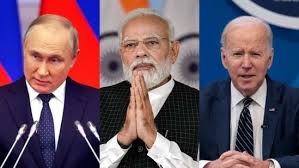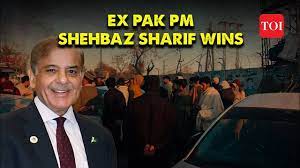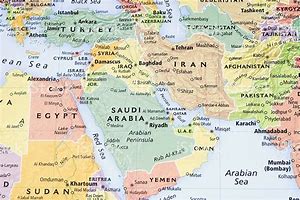by Prasad Nallapati
Foreign Policy is one of the most successful domains of Prime Minister Modi’s administration. While his third term in office is expected to be more of continuity, his early actions of omission and commission reemphasize his top priorities in right earnest.
Soon after taking the oath of office, Modi flew to Italy to attend the G7 summit from June 13-15.
He decided to skip the summit of the Shanghai Cooperation Organization (SCO) being held in Astana, Kazakhstan on July 3-4, which he had earlier agreed to attend but now excused himself due to Parliamentary session.
Russia, in the meantime, has just begun preparations for a previously unannounced Putin-Modi summit, possibly to be held on July 8.
There is no need to emphasize the importance of the summit of the advanced western economies as India leverages their cooperation for its own growth to be a global power. Modi got an excellent reception there as they need India, expected to be the driver of world economic growth in the next two-to-three decades, as much as the latter needs them.
At the same time, India has at every turn conveyed to the western world that its relations with Russia are based on mutual respect and can never be compromised. India’s stance is much appreciated in Moscow and is richly rewarded in time of crises such as supply of crude oil at discounted prices.
The US and Europe have grudgingly accepted India’s position, but would use every opportunity to undermine Modi and India. Their excessive enthusiasm in pressing India’s alleged culpability in the murder of Khalistani terrorist, Hardeep Singh Nijjar, in Canada and similar attempts in the US are some of the recent instances.
Modi was also put on notice questioning his democratic credentials.
Modi’s bilateral summit with Putin will therefore serve a message as it is happening after three years. They last met in 2021 when Putin traveled to New Delhi for the annual meeting. No such meetings were held since Russia’s military action against Ukraine. Western leaders, therefore, would be closely watching such a hastily convened summit.
The policies of the west and India, however, converge on how to deal with Chinese dragon. India’s border tensions with China remain fraught with dangers since the latter’s military incursions into border areas in December 2022 that saw several soldiers killed on both sides. President Xi Jinping “backstabbed” Modi, who had invested so much in the form of personal diplomacy to improve relations with China.
Xi has not so far congratulated Modi on his reelection. Neither the latter had done so after the former got re-elected General Secretary of the Communist Party of China for the third time in October last.
The SCO, though began as a `joint venture’ between China and Russia, has come to be fully dominated by Beijing as Moscow’s influence has started eroding. Modi attending the summit would be anathema in the face of Xi choosing to snub him by absconding the G20 summit in New Delhi in September last.
The opposition INDI Alliance, that has made strong showing in the recent elections, would have devoured him had he attended the SCO summit.
India’s facilitation of the visit of a US Congressional delegation to meet Dalai Lama last week in Dharmshala, the headquarters of the Tibetan government in exile, portends the future trajectory of India-China relations if the latter does not show any sensitivity to New Delhi’s concerns over border violations.
(Prasad Nallapati is President of the Hyderabad-based think-tank, “Deccan Council for Strategic Studies”, and former Additional Secretary to Govt of India)




